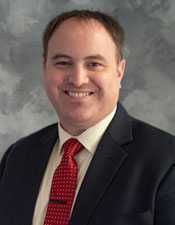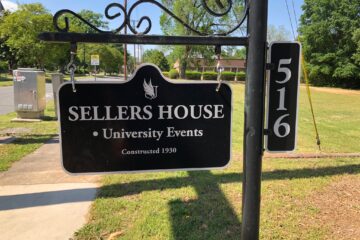Formerly known as the Winthrop University Campus Police, or WUPO, Winthrop’s local police service has now transitioned into a department to be called the Winthrop University Police Department, or WUPD. This change in title was announced via email to the student body and staff on October 1, along with an assortment of other adjustments in the department to take effect immediately.
Although the department has a new title, little has changed regarding its jurisdiction and involvement with the university, except how it will now be perceived based on name. According to Chief of Police Charles Yearta, “The state of South Carolina already considered us a department,” so no additional qualifications were required to be regarded as a department by the university. Yearta noted that the name change was primarily instituted to clarify that the department also serves students outside of the university, and is not limited within the bounds of campus grounds.
Another new addition to the police department which will broaden its influence and effectiveness is the implementation of Campus Dispatch, a service to address any phone calls to WUPD. This outsourcing allows the department to ensure steady employment and availability among their call takers in the Communications Center, as they previously “only had one communicator employed per shift in the Communications Center”, even when fully staffed, according to the email announcement. Within the past year, Yearta said that the position has remained almost completely vacant, inciting their search for a better, more reliable alternative.
Regarding the department’s process in selecting Campus Dispatch, Yearta explained that he chose between one of three options. The first was an installment of a call center in the department, but it was not a viable option as that was already troublesome. The second option was to outsource dispatching to a local third party, although this was not as reliable as option three, remote dispatching, which WUPD ultimately chose.
Campus Dispatch, according to their website, is a service utilized in 30 institutions, addressing approximately 415,000 students. Their business is tailored to the needs of an institution like Winthrop University, claiming to assist “Mid-sized institutions with one dispatcher on duty at all times” and prevent the typical issues that come along with this dynamic, such as officers spending time on call when they are expected to be patrolling. It additionally advertises as an affordable option for universities, as it calculates itself to be almost five times cheaper than “in-house dispatching”, coming in at $42,000 annually for a “a campus of 3,000 students and 12 Full-Time Officers,” a description closely matching that of Winthrop University.
A unique element of Campus Dispatch’s service is that they are completely remote from the university. As explained by Yearta, the dispatchers will “never be in the Good Building and may even be in a separate state.” Since the Communications Center serves as a kind of middleman between the callers and officers, its presence on campus is not necessarily relevant to providing quality service.
Campus Dispatch’s remoteness allows their employees to work for multiple institutions, although this will not take place on the same shift. The diversity of dispatcher locations will “build redundancy into the system,” explained Yearta. Regardless of any hiccups on campus, such as a power outage, Campus Dispatch will always be available to students and faculty when needed.
When asked if the new dispatchers are properly equipped to address Withrop-specific questions and concerns despite their services being utilized at multiple institutions, Yearta said that the dispatchers are not only well equipped with training specifically tailored to higher education and students, but that they have been informed of the overall geographics of campus, the function of other important departments at Winthrop, and the typical protocol of WUPD in handling different types of calls.
So far, Yearta and his department have received overwhelmingly positive feedback concerning callers’ experience with Campus Dispatch. While the dispatchers may still be getting to know the university, their background and consistent availability is a notable improvement to WUPD’s previous issues with the Communications Center.
The final WUPD development Yearta noted in his email was a transition to paperless temporary and visitor parking passes. Instead of having to visit the police office in advance to request a parking pass in person, passes can now be obtained online immediately prior to parking. When asked how officers will check for parking validity without a visible pass, Yearta said they have the technology to simply check license tags to confirm legal parking.
Many elements of the police department will continue as normal despite their aforementioned changes. The Good Building will remain open all hours of the day, and their phone number will remain the same, although who exactly picks up the phone will be different. Services such as the Livesafe app and police escorts will also remain unchanged.




